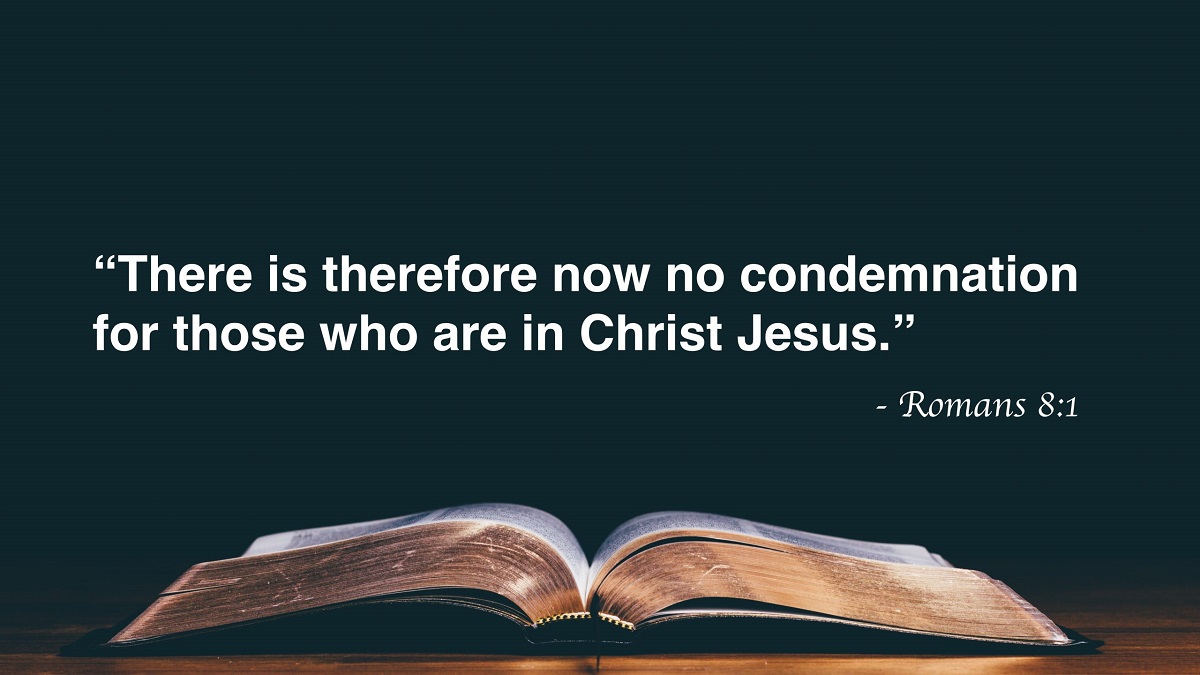Romans 8 stands as one of the most profound and uplifting chapters in the New Testament, often hailed as the pinnacle of the Apostle Paul’s theological exposition in his letter to the Romans. This chapter delves into the realities of Christian living, emphasizing freedom from condemnation, the empowering role of the Holy Spirit, adoption as God’s children, the purpose of suffering, and the unbreakable assurance of God’s love.
Written around AD 57 during Paul’s third missionary journey, Romans addresses a diverse church in Rome, blending Jewish and Gentile believers. Chapter 8 builds on earlier themes of justification by faith (Romans 3-5) and sanctification (Romans 6-7), shifting focus to life in the Spirit as the antidote to the struggles of the flesh. Theologically, it counters legalism and despair, assuring believers of their secure position in God’s redemptive plan. As one commentary notes, Romans 8 is unique in its sensitive treatment of creation’s plight and renewal, tying human salvation to cosmic restoration.
Let’s explore this chapter section by section.

No Condemnation: Freedom in Christ (Romans 8:1-4)
The chapter opens with a triumphant declaration: “There is therefore now no condemnation for those who are in Christ Jesus” (Romans 8:1). This “therefore” connects to the previous chapter’s depiction of inner conflict under the law, affirming that union with Christ—through faith—frees believers from sin’s penalty. Theologically, this reflects a legal acquittal: Just as Christ was not condemned after His resurrection, neither are those divinely united with Him. Historically, in a Roman context valuing justice, this would resonate as a final verdict, unappealable and absolute.
Comparing Galatians and Romans: Freedom and Faith in Paul’s Epistles
Verses 2-4 explain this freedom: “The law of the Spirit who gives life has set you free from the law of sin and death” (Romans 8:2). The Mosaic law, weakened by human flesh, couldn’t achieve righteousness, but God did through Christ’s incarnation—sending His Son “in the likeness of sinful flesh” to condemn sin (Romans 8:3). This fulfills the law’s righteous requirements “in us,” not by our efforts, but through Christ’s substitutionary work. This shifts believers from external legalism to internal transformation, where obedience flows from the Spirit’s power. Practically, this means Christians can live without guilt’s burden, trusting God’s grace over self-condemnation.
Life in the Spirit vs. the Flesh (Romans 8:5-13)
Paul contrasts two ways of life: Those who live “according to the flesh” set their minds on fleshly desires, leading to death, while those “according to the Spirit” focus on spiritual matters, yielding life and peace (Romans 8:5-6). The carnal mind is “hostile to God” and unable to submit to His law (Romans 8:7-8), underscoring human depravity and the futility of pleasing God through fleshly efforts, even religious ones.
Believers, however, are “not in the realm of the flesh but are in the realm of the Spirit” if the Spirit dwells in them (Romans 8:9). This indwelling marks true Christianity: Without the Spirit of Christ, one does not belong to Him. Verse 10 adds hope: Though the body is dead because of sin, the Spirit gives life through righteousness. The same Spirit who raised Jesus will quicken mortal bodies (Romans 8:11). Theologically, this points to an ontological shift—believers are transferred from sin’s tyranny to Spirit-empowered living, enabling righteous behavior. Practically, it calls for “putting to death the misdeeds of the body” by the Spirit (Romans 8:13), encouraging daily surrender to avoid carnal dominance.
Understanding the Book of 2 Corinthians: Ministry and Generosity
Adoption as Sons and Heirs (Romans 8:14-17)
Those led by the Spirit are “children of God” (Romans 8:14), receiving the “Spirit of sonship” that banishes fear and enables us to “Abba, Father!” (Romans 8:15). This adoption contrasts with Old Testament bondage, offering intimate access to God. The Spirit testifies with our spirit that we are heirs—co-heirs with Christ—if we share in His sufferings (Romans 8:16-17).
Theologically, this elevates believers to familial status, inheriting God’s promises. Historically, “Abba” reflects Jesus’ own prayer (Mark 14:36), inviting Gentiles into Israel’s privileges. Believers are God’s children, this brings an assurance of the believer’s identity even in uncertainty.
Suffering, Groaning, and Hope (Romans 8:18-25)
Paul reckons present sufferings incomparable to future glory (Romans 8:18). Creation itself “groans” in frustration, awaiting liberation into the freedom of God’s children (Romans 8:19-22). This echoes Genesis 3’s curse, where humanity’s fall impacted the cosmos, now longing for renewal. Believers, with the Spirit’s “firstfruits,” also groan inwardly, awaiting bodily redemption (Romans 8:23).
Understanding the Book of 1 Corinthians: Church and Spirituality
Hope sustains this waiting: “We hope for what we do not yet have” (Romans 8:24-25). Theologically, this ties salvation’s past (justification), present (sanctification), and future (glorification) aspects, with creation sharing in redemption. Practically, it urges environmental stewardship, viewing creation as part of God’s plan, and patient endurance amid trials.
The Spirit’s Intercession (Romans 8:26-27)
In weakness, the Spirit helps us, interceding with “wordless groans” (Romans 8:26). God, who searches hearts, knows the Spirit’s mind, interceding according to His will (Romans 8:27). This assures effective prayer even when words fail. Theologically, it hints at Trinitarian dynamics, with the Spirit bridging human frailty and divine purpose.
God’s Sovereign Plan (Romans 8:28-30)
“All things work together for good” for those who love God, called according to His purpose (Romans 8:28). This includes foreknowledge, predestination to Christ’s likeness, calling, justification, and glorification (Romans 8:29-30). Theologically, it portrays salvation as a divine chain, rooted in everlasting love, ensuring conformity to Christ. Practically, it comforts in adversity, trusting God’s orchestration.
Understanding the Book of Ephesians: Church and Unity
Triumph in God’s Love (Romans 8:31-39)
If God is for us, who can be against? He gave His Son, freely giving all things (Romans 8:31-32). No accusation stands, as God justifies and Christ intercedes (Romans 8:33-34). Nothing—tribulation, distress, or any created thing—separates from Christ’s love (Romans 8:35-39). Theologically, this climaxes the chapter, affirming eternal security. As conquerors through Christ, believers fight from victory (Romans 8:37). When you are faced with opposition, face it with confidence, rooted in God’s unbreakable love.
Key Themes in Romans 8
- Freedom and No Condemnation: Liberation from sin’s law through Christ.
- Spirit vs. Flesh: Empowerment for holy living.
- Adoption and Inheritance: Intimate sonship and future glory.
- Suffering and Hope: Present trials lead to eternal renewal.
- Intercession and Sovereignty: Spirit and Christ’s advocacy in God’s plan.
- Inseparable Love: Ultimate assurance.
Conclusion: The Pinnacle of Hope
Romans 8 encapsulates the gospel’s power, from freedom to eternal love. As Paul triumphs, “We are more than conquerors through him who loved us” (Romans 8:37). Dive into this chapter for renewed faith—it is a lifeline for every believer.
Understanding the Book of Romans: Salvation and Faith
Understanding the Book of Galatians: Freedom and Faith
Understanding the Book of Colossians: Christ and Supremacy
Understanding the Book of Philippians: Joy and Partnership
Last modified: October 4, 2025

